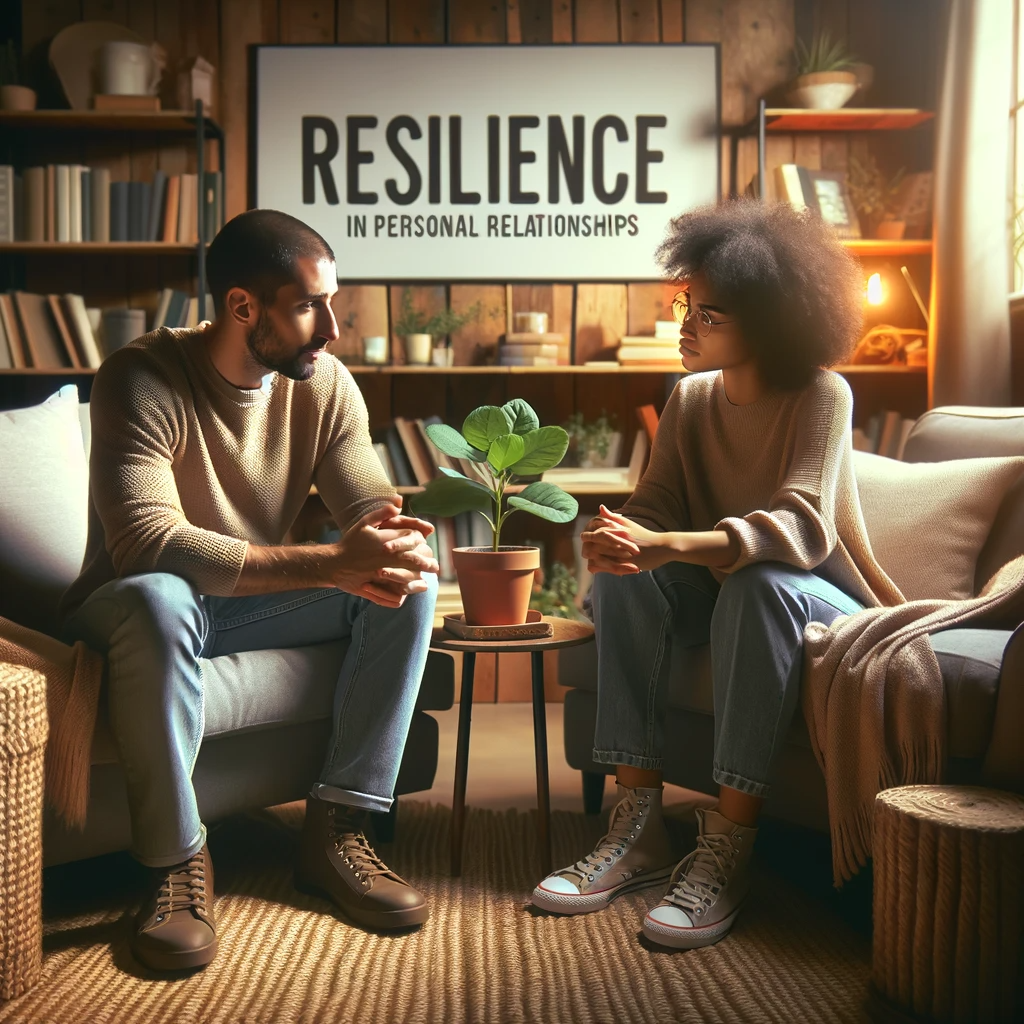
In our ever-evolving world, where challenges and changes are constant, resilience in personal relationships becomes a cornerstone for lasting connections. Resilience, the ability to recover from difficulties and adapt to change, is often discussed in the context of individual psychology. However, its application in the realm of personal relationships is equally vital. This article explores practical and research-backed strategies for building resilience in relationships, fostering stronger and more enduring bonds.
Understanding Resilience in Relationships
Resilience in relationships means more than merely surviving rough patches. It involves growing and strengthening the bond through adversity. A study by Finkel et al. (2013) emphasized the adaptive nature of resilient couples, highlighting their ability to maintain high relationship satisfaction despite stressors. This adaptability is key to sustaining long-term connections.
Strategies for Building Relationship Resilience
Effective Communication: Open, honest, and empathetic communication is fundamental. Research by Gottman and Levenson (1999) identified positive communication patterns as predictors of relationship longevity. Encourage dialogue about feelings, fears, and aspirations. This level of transparency fosters trust and understanding.
Shared Values and Goals: Aligning on core values and shared goals creates a strong foundation. A study by Acevedo et al. (2011) found that couples with aligned values experienced higher relationship satisfaction. Regularly discuss and update your mutual goals to ensure alignment.
Emotional Intelligence: Developing emotional intelligence (EQ) is critical. High EQ individuals are better at recognizing and managing their emotions and understanding their partner’s emotional needs. Dr. John Gottman’s research emphasizes the role of emotional intelligence in successful relationships.
Conflict Resolution Skills: Learn to manage conflicts healthily. Resilient couples view conflicts as opportunities for growth. They adopt a problem-solving approach, as highlighted in a study by Stanley et al. (2002), focusing on finding solutions rather than winning arguments.
Support Networks: Cultivate a strong support network outside the relationship. Friends, family, and community provide emotional support and perspective. A study by Cutrona (1996) emphasized the importance of social support in enhancing relationship resilience.
Flexibility and Adaptability: Embrace change and adapt together. Life is unpredictable, and flexibility allows couples to navigate challenges effectively. Research shows that adaptability in relationships is linked to higher satisfaction and stability.
Self-Care and Independence: Foster individual growth and self-care. Maintaining personal hobbies, interests, and friendships enriches individual identity and contributes positively to the relationship, as per research by Deci and Ryan (2000).
Gratitude and Appreciation: Regularly express gratitude and appreciation. Positive reinforcement strengthens emotional bonds and increases relationship satisfaction, according to studies by Algoe et al. (2010).
Shared Experiences: Create and cherish shared experiences. Engaging in activities and facing challenges together strengthens the bond and creates lasting memories.
Nurturing Resilient Relationships: A Continuous Journey
Building resilience in relationships is an ongoing process. It requires consistent effort, empathy, and willingness to grow both as individuals and as a couple. By adopting these strategies, couples can navigate the complexities of life together, fostering a relationship that is not only enduring but also enriching and fulfilling.
As we integrate these practices into our relationships, we cultivate a resilience that not only withstands life’s challenges but also thrives amidst them. Remember, the strength of a relationship lies not in its invulnerability to hardship but in its ability to adapt, grow, and flourish through it.
Disclaimer: This article provides general insights based on research and should not replace professional advice. For personalized guidance, consulting a relationship expert or counselor is recommended.